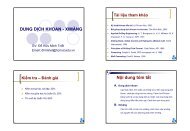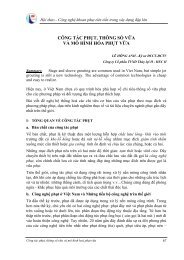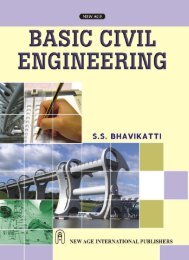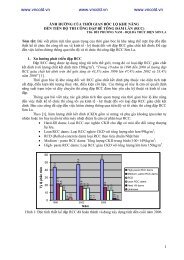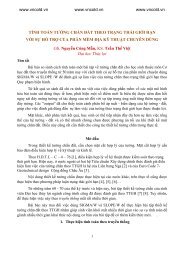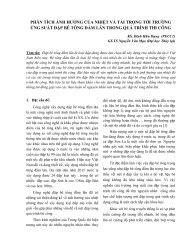Civil Engineering Project Management (4th Edition)
Create successful ePaper yourself
Turn your PDF publications into a flip-book with our unique Google optimized e-Paper software.
222 <strong>Civil</strong> <strong>Engineering</strong> <strong>Project</strong> <strong>Management</strong><br />
adjudication has allowed many subcontractors easier and quicker access to an<br />
independent decision on matters affecting them directly.<br />
17.15 Alternative dispute resolution<br />
The time consuming and sometimes expensive traditional methods of resolution<br />
of disputes by reference to the courts or arbitration led to the adoption of<br />
processes known as alternative dispute resolution (ADR). These include direct<br />
discussion between executives of the parties; obtaining the advice of independent<br />
experts; or using a conciliator trying to find common ground, or of a mediator<br />
looking for an agreed solution. The ICE conditions permit either party<br />
to refer a dispute to conciliation procedure, provided the other has not already<br />
elected to go to arbitration. The difference between arbitration and conciliation<br />
needs to be appreciated. With arbitration each party states its case and is subject<br />
to cross-examination by the other party. The arbitrator’s decision is based only<br />
on evidence submitted to him, although of course he can put queries to either<br />
party. But in a conciliation procedure the conciliator, often a professional engineer<br />
can investigate, and call for information on all matters he considers relevant<br />
to the dispute, and may interview the parties separately. This gives him a<br />
good chance of discovering the root cause of a dispute, enabling him to find a<br />
solution both parties can accept.<br />
Of course for any method of conciliation or mediation to be successful, there<br />
must be a willingness in both parties to try to find a solution and the introduction<br />
of an outside independent party assists this process. Such methods of<br />
resolving problems are attractive due to reduced costs in employing lawyers<br />
and experts as well as in staff costs and in tying up senior management if they<br />
pursue arbitration or court action.<br />
Many standard forms of contract refer to ADR methods and encourage the<br />
parties to try to settle disputes by such means. The introduction of provisions<br />
for adjudication into UK contracts has opened up the opportunities for early<br />
resolution of problems but there is still considerable interest in conciliation<br />
and mediation and the courts have encouraged parties to try such methods<br />
before commencing court actions. There is considerable debate concerning<br />
the relative merits of conciliation and adjudication. Conciliation proceedings<br />
are confidential, and the conciliator’s recommendations cannot be quoted by<br />
either party in any subsequent arbitration. This aids reaching agreement as the<br />
disputants can state their views to the conciliator without prejudice. Adjudication<br />
is more formal. It is not a method of reaching agreement between the<br />
parties but a decision as to what the contract provides with respect to the<br />
matter in dispute. Any submissions to the adjudicator can be referred to in a<br />
subsequent arbitration, and the adjudicator may decide that he needs to employ<br />
specialist advice on technical or legal matters. Under adjudication the parties<br />
may feel it necessary to employ legal advice in presenting submissions and<br />
thus increase their potential costs.







